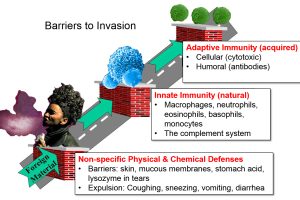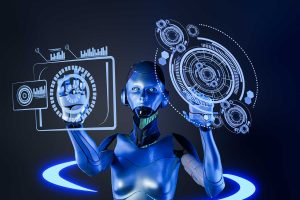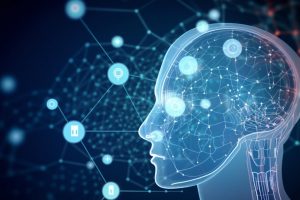(Machine learning and deep learning have a unique meaning. Let’s understand how these terms fit together)
Whether you are from the field of data science or not, you may have heard terms like artificial intelligence, machine learning and deep learning. These terms are used interchangeably. Machine learning and deep learning are significant concepts in data science. Though these terms correlate, they have different meanings.
Each of these terms has a unique meaning that describes their importance in the technical landscape. They are more than buzzwords related to data science, specifying their unique characteristics and importance. Deep learning is a subset of machine learning, and machine learning is a subset of artificial intelligence. In this way, you can understand their significance in this field.
In this article, we will dive into the detailed comparison of Deep learning vs machine learning. But before learning about the comparison, let’s understand the meaning of deep learning and machine learning.
What is machine learning?
Based on artificial intelligence, machine learning is a growing technology that trains algorithms on large datasets to recognise patterns and relationships and then make predictions based on the instructions. The algorithm learns from different types of data to make predictions and decisions.
Machine learning focuses on creating computers that are trained on the data. ML (machine learning) uses various techniques that help software techniques improve performance from time to time.
Machine learning techniques are trained extensively to recognise different types of patterns in data. As input, they receive historical data to make predictions, classify information, group data, reduce dimensions, and create new content.
Machine learning is widely popular in various industries for its usage and accomplishing various types of tasks. The recommendation engines are popular examples of machine learning used by e-commerce, news, and social media platforms to suggest content, products, or services based on the user’s behaviour. They are able to make these predictions by analysing different factors, demographics, interests, user behaviour and product attributes.
Machine learning applies to diverse fields such as healthcare, technology, and finance. E-commerce, manufacturing, transportation, etc. Machine learning can develop algorithms that can learn and understand without being explicitly programmed. Some common examples of these algorithms are decision trees, naive bugs, random forests, logistic regression, etc.
Machine learning pros
Natural language processing capability: Process language text based on human instructions.
Versatile: it is applicable in various industries.
Data mining and pattern recognition: Can quickly discover and recognise patterns
Easy deployment: Its implementation is easier.
Efficient resources: requires less computational power to operate
Types of Machine Learning
Machine learning can be classified into three parts.
Supervised learning:
Supervised learning is based on the labelled data to train algorithms and achieve the desired outputs. This training data model includes outputs and inputs to train the model over time. In order to measure the accuracy, the algorithm uses the loss function and adjusts the error until it is fixed completely.
Labelled data simply means the data is already marked with the right outputs. In this type of method, the data provided to the machine is known as supervised data, which teaches them to make predictions accurately. The concept is similar to a classroom scenario, where a student learns under the supervision of a teacher.
Unsupervised learning:
Unsupervised learning is the process of training the algorithm on unlabelled data. In this training database model, the desired output is unknown. Instead, the model itself recognises the hidden patterns and information from the given data. The process is similar to the human brain, which learns things by itself.
In simple words, unsupervised learning is a form of machine learning where the data is trained on the unlabelled database. Unsupervised learning is ideal for explanatory data analysis, cross-selling strategies, customer segmentation and image recognition. The goal of unsupervised learning is to find the unstructured dataset.
Reinforcement learning:
Reinforcement is a subfield machine-learning method that enables AI-based systems to make the best decisions in a dynamic environment to maximise profits. Contrary to supervised learning, where algorithms learn from the labelled data and have the answer key with it, RL learns by interacting with the environment.
In simple words, It learns from trial and error. For example, it is like training a pet, where a system (reinforcement agent) figures out from its own experiences what action to take to perform a specific task. This training database model is employed in various tasks and data models to find the best possible behaviour in a specific situation.
What is deep learning?
The term deep learning refers to neural networks composed of multiple layers of interconnected nodes and capable of solving complex problems. They are designed to simulate the behaviour of the human brain. The single layer of the neural network makes predictions. At the same time, other layers help to refine and optimise accuracy.
In simple words, deep learning is a method that trains computers to think and process data like a human brain. They focus on pattern recognition to understand the different types of Data. Deep learning models can understand images, texts, sounds, and other data types to generate meaningful and accurate results.
Deep learning is helpful in various fields where accuracy and more depth are needed. It uses neural networks to understand and process different types of information.
Types of deep learning
There are different types of deep learning algorithms available in the market. These algorithms help in various kinds of tasks and applications. Here, we will mention a few to understand the difference between machine learning and deep learning.
Convolutional Neural Networks:
Convolutional neural networks are one of the common types of deep learning. They contain multiple layers and work well with images and videos. CNN recognises satellite images, forecast conditions, medical images, and more. They are well-suited for classification, detection, and segmentation tasks.
Recurrent neural networks:
Recurrent neural networks excel in processing sequential data like time series and natural language. These types of neural networks are well-suited for internal problems.
Deep learning Pros
Superior performance: Achieve greater results
Scalable: efficient in handling large amounts of data and challenging tasks
Wide application: applicable in various tasks.
Machine learning vs Deep learning
Though AI has long existed, many of us still need to familiarise ourselves with its potential and history. Oxford Dictionary defines AI as a theory and development of computer systems to perform various tasks that normally require human intelligence. Britannia also has a similar definition of AI.
Machine learning and deep learning are both related to AI. Still, people find it difficult to understand their meaning and compare machine learning and deep learning. Artificial intelligence is the base, whereas machine learning is the subfield. Machine learning creates trained algorithms and statistic models that are well-versed in making predictions and decisions.
On the other hand, deep learning is a subset of machine learning that trains computers to mimic the human brain’s learning process. It specialises in recognising complex patterns and data.
Future of machine learning and deep learning
This is the age of revolution, where technology is changing the game every day. In current years, AI has become a transformative power in various industries. Both machine learning and deep learning have the potential to change a wide range of industries, like healthcare, food, finance, retail and more.
They can provide insight and automate the decision-making process. This makes them well-suited and functional for real-world problems. Moreover, they can learn and adapt to new situations.
Machine learning helps make general predictions and recommendations and analyse different types of patterns. These technologies are useful for various purposes. Machine learning uses large amounts of data to train models and find accurate results. It focuses on the development of computer programs that use the data to learn from itself.
On the other hand, deep learning helps solve complex problems. Deep learning algorithms are exactly like machine learning but consist of more layers of algorithms. Together, these networks are called neural networks. These neural networks replicate like a human brain, as all neural networks are connected in the brain.
Real-world applications
The magic of machine learning and deep learning is revolutionising many industries and creating several opportunities. Whether we are surfing on the internet or watching a film on the internet, machine learning algorithms recognise all the behaviours and suggest choices based on preference. Virtual assistance also uses natural language processing to understand voice recommendations and complete various tasks like playing music, setting alarms and more.
Deep learning technologies help cars perceive the environment and make safe driving decisions. Machine learning algorithms can also analyse the data from satellites and help scientists to understand the universe.
Conclusion
In this era of the AI revolution, it’s crucial to understand machine learning vs deep learning. Both these AI technologies are highly popular and used in a wide range of fields. Machine learning and deep learning have differences but offer complex tools to solve the challenges. machine learning vs deep learning future technology in world.



















